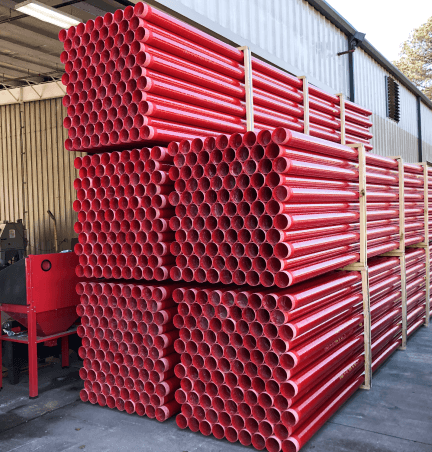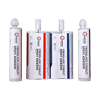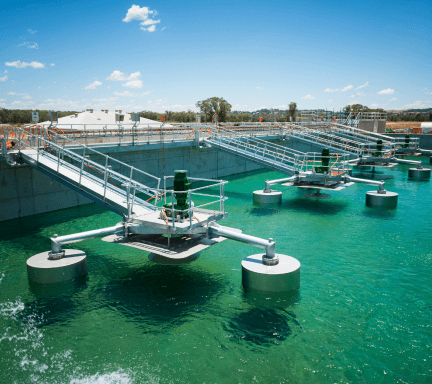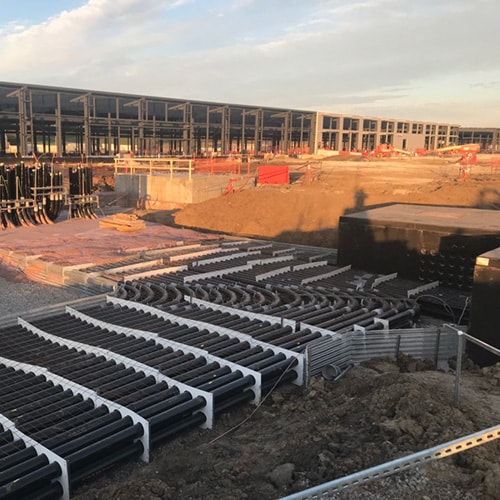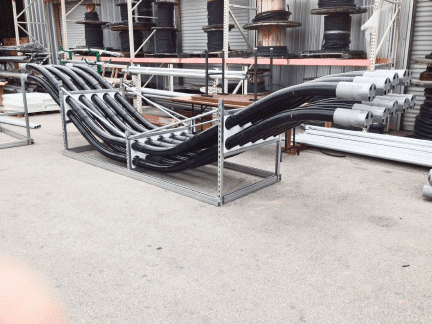Industrial and commercial construction projects are wide and varying in scope. They demand a strong, low-maintenance, durable electrical conduit that is lightweight, versatile and easy to install.
Industrial construction refers to industrial buildings, such as factories or warehouses, where products are made or stored. Examples include printing facilities, pulp and paper mills, food processing plants or steel mills. Often in these applications electrical conduit is exposed to chemicals or UV if installed outdoors.
On the other hand, commercial construction consists of workplaces, offices, stores, or other distinctive structures used in and for businesses or commerce. Think office buildings, hotels, malls and shops. For these jobs, in addition to being strong and durable, a lightweight conduit really helps streamline installation.
There are many electrical conduit materials to choose from for industrial and commercial construction projects including galvanized steel, aluminum, electrical metal tubing (EMT), PVC and fiberglass that provide mechanical protection for electrical wire. Typically, PVC electrical conduit is used in both industrial and commercial electrical raceways for its corrosion resistance. With the worldwide shortage of PVC base resins that has been in swing since 2020, PVC electrical conduit is now experiencing skyrocketing prices and delays.
There is, however, a reliable alternative to PVC electrical conduit. In most projects, fiberglass conduit can be used instead of other types of conduit. Champion Fiberglass conduit has been used effectively in commercial and industrial projects in underground, above ground and encased buried installations within those industries.

Unaffected by the PVC shortage, Champion Fiberglass® conduit is available now with shorter lead times and competitive pricing.
In many cases, fiberglass conduit (RTRC) can be substituted for PVC conduit with great success. Across many applications, projects using fiberglass conduit benefit from:
- Lower installation costs
- Light weight
- Superior compression and impact strength
- No burn-through
- Low coefficient of friction
- Superior corrosion resistance
In fact, Champion Fiberglass is UV resistant and corrosion resistant to many chemicals. Additionally, Champion Fiberglass conduit is 15x lighter weight than PVC-coated steel and features labor costs that are 5x lower – without sacrificing safety or strength.
In one project, the conduit’s lightweight nature helped Champion Fiberglass streamline installation at the Niagara Falls Observatory. When engineers searched for a lightweight alternative to PVC-coated steel conduit, Champion Fiberglass fit the bill – and cut the project’s weight by over 30,600 lbs. Get more details here.
In commercial and industrial applications, fiberglass electrical conduit offers strength and durability for low maintenance use that’s in adherence to the National Electric Code. Champion Fiberglass is backed by 30 years of proven experience and a sales support team that has been providing customer solutions for years.
If you have more questions as to whether fiberglass conduit will work in your project, contact our helpful sales team to see how we can solve your project challenges. – 281.655.8900.








